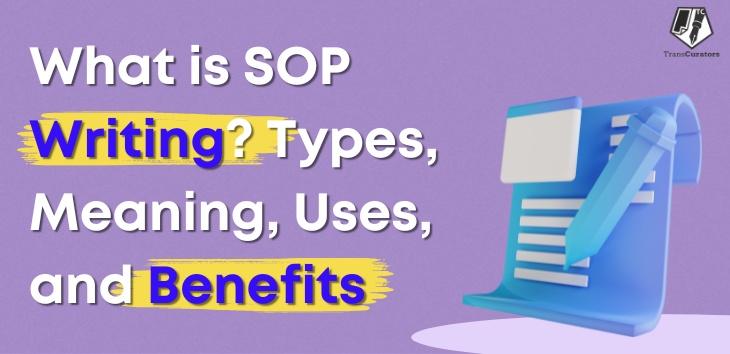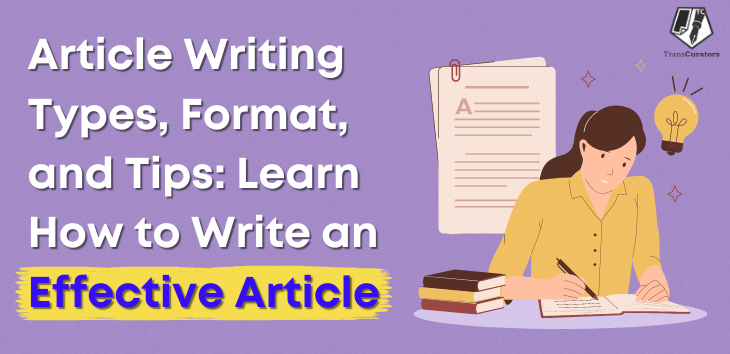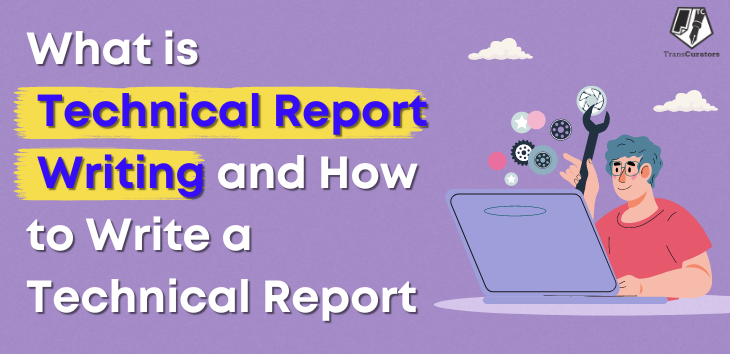
When you enter the realm of academics or professional advancement, you will likely encounter the word SOP. A crucial document that stands out in academics and professional growth is the Statement of Purpose (SOP). Whether applying to universities, looking for a job, or pursuing a specialised professional certification, an SOP can help you succeed. But what does SOP writing mean? Let us break it down into simple, straightforward terms. In this blog, we will explore the SOP writing meaning, types, uses, and benefits of SOP writing, offering insights into how you can craft a captivating SOP.
What is SOP Writing?
An SOP, or Statement of Purpose, is necessary when applying for academic programmes or professional roles. It is a personal narrative in which you describe who you are, your educational or professional background, career objectives, and why you are interested in a particular programme or job. See it as an opportunity to introduce yourself in more detail compared to what is stated on your educational transcript or resume.
In a SOP, you express your motivations and ambitions. You describe what inspires you, what you aim to achieve, and how this specific chance fits into your long-term goals. For academic programmes, this might encompass your passion for a particular field of study, relevant research experience, and how you plan to contribute to the programme. For professional roles, you can emphasise your career achievements, skills, and how the position fits your career path.
The SOP is more than a mere formality. It facilitates employers’ or admissions committees’ understanding of your personality, enthusiasm for the work, and potential to contribute meaningfully. Crafting a well-thought-out SOP is crucial in the application process, as it can significantly influence your chances of being hired or getting accepted into a programme.
Types of Statement of Purpose (SOP)
A Statement of Purpose (SOP) is an important document that allows you to describe yourself, your achievements, and your objectives. There are different types of SOPs. Whether you’re applying for an academic programme, job, or visa, drafting a Statement of Purpose (SOP) is crucial. Different types of SOPs serve various needs, each with its specific focus and structure depending on the context. Understanding these types will help you craft an effective and tailored SOP for your application. Here are the basic types of SOPs and what each one entails:
1. Academic SOP:
An Academic SOP is essential when applying to undergraduate, graduate, and postgraduate programmes. In this SOP, you should showcase your educational history, significant accomplishments, and relevant courses. Explain why you picked this particular field of study and how the programme fits into your professional aspirations. Mention any specific classes, professors, or research facilities that interest you. This type of SOP should demonstrate your enthusiasm for the subject and dedication to academic excellence.
2. Professional SOP:
A Professional SOP is used to apply for jobs, internships, or promotions. This SOP should outline your professional background, including work experience, skills, and accomplishments. Explain your career goals and how this role will help you achieve them. Highlight critical projects or jobs that demonstrate your expertise and contributions. This type of SOP allows you to explain how your experience and skills make you an ideal candidate for the position, emphasising your commitment to contributing to the organisation.
3. Research SOP:
A Research SOP is essential for all research careers, grants, and academic projects. This SOP should describe your research interests, previous research experiences, and the methods you have mastered. Describe your research objectives and how they align with the institution’s or funding organisation’s aims. Mention which faculty members or labs you want to collaborate with. This SOP should demonstrate your passion for research, understanding of the field, and ability to offer new knowledge.
4. Visa SOP:
A Visa SOP is required for visa applications, particularly for studying or working abroad. Describe why you choose a particular country, institution, or job in this SOP. Outline your academic or professional plans and how they relate to your long-term ambitions. Address any previous travel history and express your intent to return to your home country if needed by the visa type. This SOP should satisfy immigration authorities by stating that you have genuine intentions and are prepared for the journey.
5. Scholarship SOP:
A Scholarship SOP is needed when applying for financial aid or scholarships. This SOP should highlight your academic accomplishments, extracurricular interests, and any challenges you overcame. Explain why you deserve the scholarship and how it will help you reach your educational and professional aims. Mention any unique qualities or experience that make you an exceptional candidate. This type of SOP should indicate your financial necessity and ability to make the most of the opportunity.
To illustrate the concept of SOP writing, here are a few SOP writing examples:
1. Academic SOP Example:
“My interest in environmental science began in my high school biology lessons. Participating in neighbourhood cleaning initiatives and researching sustainable development has sparked my interest in climate change mitigation. I hope to use the Master’s programme at [University Name] to expand my knowledge of environmental policy and contribute to new solutions.”
2. Professional SOP Example:
“With five years of digital marketing expertise, I’ve led initiatives that have produced considerable ROI for my previous job. The Digital Marketing Manager position at [Company Name] effectively aligns with my career aim of using data-driven methods to improve brand awareness and consumer engagement.”
3. Research SOP Example:
“My interest in microbiology research began during my undergraduate years when I explored the potential of probiotics in treating gastrointestinal problems. I am excited to join [Institution Name]’s PhD programme to further explore microbial interactions and their influence on human health.”
Understanding the Purpose of an SOP
Understanding the purpose of a SOP is essential for creating an effective one. It is your opportunity to go beyond numbers and present a captivating story about who you are, what inspires you, and why you are a perfect match for the programme or role. You can create a compelling case for your candidature and differentiate yourself by emphasising your unique characteristics, objectives, and goals.
1. Introducing Yourself Beyond Numbers
Your resume, transcripts, and test scores prove your qualifications quantitatively. However, these figures do not reflect your journey, your motivations, or the context for your achievements. The SOP covers this gap. It helps you to introduce yourself in a more personalised and comprehensive manner. You can talk about the events that moulded you, the challenges you overcame, and the inspirations that drove you.
2. Highlighting Your Fit for the Program or Position
Each academic programme or employment requires specific qualities in candidates. The SOP allows you to demonstrate that you possess these qualities. You can show you are a perfect match by connecting your experiences and aims with the programme or organisation’s beliefs and goals. This harmony is critical since it shows that you have done your research and are genuinely interested in the opportunity.
3. Showcasing Your Communication Skills
Effective communication is an essential skill in both academic and professional contexts. A clear, brief, and captivating SOP showcases your ability to communicate your thoughts and opinions. It displays your capability to structure your narrative logically and present your position persuasively. These highly desired talents can help you stand out from other candidates.
4. Explaining Your Motivation and Goals
Admissions committees and companies want to hear why you’re interested in their programme or job. They are interested in your long-term goals and how this change fits your career plans. The SOP allows you to describe your motives and how the programme or position will help you accomplish your goals. This clarity of aim can increase your application’s effectiveness and credibility.
5. Providing Context for Your Achievements
Your academic and professional achievements are noteworthy, but the context behind them can provide more insight into your abilities. The SOP allows you to describe the significance of your accomplishments, talents, and lessons learned. You can discuss how certain events have prepared you for future challenges and helped you grow.
6. Demonstrating Your Passion and Enthusiasm
Enthusiasm and passion are often immensely motivating. When you write a SOP, you can express your genuine enthusiasm for the field of study or professional role you seek. Showing your passion can have a lasting effect on the reader, highlighting your commitment and determination.
7. Addressing Potential Weaknesses
If there are any gaps or flaws in your application, address them in the SOP. You can provide explanations and context to alleviate these concerns, whether a lower grade in a particular course or a break in your career history. This proactive attitude demonstrates that you are aware of your shortcomings and have taken measures to address them.
8. Building a Personal Connection
Finally, a SOP can help you build a personal connection with the reader. You can make your application stand out by sharing your experience and uniqueness. When the admissions committee or hiring manager deals with two equally competent individuals, this connection can make a difference and be the deciding factor.
Uses of SOP
A Statement of Purpose (SOP) is a valuable document with several uses in academic, professional, and immigration contexts. The primary objective of SOP is to present an individual’s motives, qualifications, and future aspirations, making it a key element in several application procedures.
1. Role of SOP in University Admissions:
An SOP is essential for university admissions, especially for graduate and postgraduate programmes. It allows applicants to provide a complete overview of their academic background, research interests, and career objectives. SOP shows previous accomplishments and how that programme matches the applicant’s long-term goals. An SOP assists admissions committees in making informed decisions beyond grades and test scores by offering information about the candidate’s personality, work ethic, and intellectual ability.
2. Significance of SOP in Scholarship and Applications:
Scholarship and fellowship applications rely greatly on SOPs to evaluate candidate suitability. The primary focus is defining the applicant’s dedication to their field of study, capability to contribute meaningfully, and need for financial support. A well-written SOP can provide a persuasive case for why an application merits money, frequently tipping the scales in their favour.
3. Research Programmes and Internships SOP:
Research programmes and internships require SOPs to determine an applicant’s interest in an area of study and preparedness to embark on specific assignments. This is especially important in competitive sectors where distinguishing oneself via personal narrative and research interest is critical.
4. Professional Applications of SOP:
In the professional world, SOPs function similarly to cover letters but with a broader explanation of the applicant’s career path and goals. An SOP can serve as a narrative for job applications, linking previous professional experiences with future career aspirations and describing how a particular role fits within this trajectory. Career changers who need to demonstrate their change in direction and emphasise transferable skills can find this especially useful.
5. Promotions and Infernal Job Postings SOPs:
When applying for promotions or internal job postings, employees can use an SOP to describe their accomplishments and organisational objectives for future contributions. This demonstrates a clear synergy with organisational goals and displays leadership potential.
6. SOP Requirements in Visa and Immigration Process:
For visa and immigration purposes, SOPs are often a mandatory component. Student visa applications, for example, require an SOP that explains the applicant’s academic goals and reasons for choosing a specific country and the institution. It must also include post-graduation goals that explain how the student intends to use their overseas education constructively.
7. SOP for Work Visas and Permanent Residency Applications:
For work visas, an SOP must outline the applicant’s qualifications, the nature of the job offered, and their long-term career goals in the host nation. This allows immigration authorities to assess the applicant’s ability to contribute positively to the host country’s economy and society. Permanent residence applications also benefit from a detailed SOP that covers long-term integration plans and community involvement.
Benefits of SOP
Understanding the purpose and benefits of SOP is crucial for creating an effective document. It allows you to provide an extensive narrative about your personality, motivations, and suitability for the programme or job. Here are some significant benefits of creating a strong SOP:
1. Personal Insight
The process of drafting a SOP offers you valuable personal insight. It enables you to reflect on your journey, analyse your motives, and set specific goals for the future. This self-awareness is beneficial in professional and educational contexts.
2. Increased Chances of Acceptance
A well-written SOP can boost your chances of getting into a programme or a job. It gives you a platform to highlight your qualities, achievements, and suitability for the role, making your application more captivating.
3. Professional Development
Writing an SOP enhances your professional development skills. It improves your ability to present, communicate effectively, and think carefully about your goals and achievements. These skills are essential for career growth.
4. Building Confidence
A strong SOP builds confidence. Knowing you have properly presented yourself boosts your self-esteem, allowing you to be more confident in interviews and other professional interactions.
What are some common mistakes to avoid when writing an SOP?
Writing a SOP can be challenging. Here are some typical pitfalls to avoid:
1. Being Too Generic
Avoid writing a generic SOP that can apply to any program or job. Customise your SOP to the individual institution or company, emphasising why you are the best fit for their program or role.
2. Using Complex Language
Keep your language basic. Avoid jargon and unnecessarily complicated words. The aim is to convey your ideas efficiently, not to impress with fancy phrases.
3. Focusing Only on Achievements
While it is crucial for you to highlight your achievements, you should also describe your motivations, goals, and how you have grown from your experiences. Admissions committees and employers want to know who you are rather than just what you’ve accomplished.
4. Ignoring Guidelines
Always stick to the guidelines provided by the institution or company. Ignoring word limits, formatting instructions, or specific queries could negatively impact your application.
5. Being Dishonest
Never exaggerate or lie about your experiences or achievements. Be honest and genuine in your SOP. Admissions committees and employers can spot dishonesty, which reduces your chances of acceptance.
Conclusion
Writing a SOP is an essential component of many academic and professional applications. A well-written SOP can open doors to educational opportunities, career advancements, and international experiences. Understanding the concepts, types, applications, and benefits of an SOP will assist you in creating an engaging document that highlights your strengths and aspirations. Following a structured SOP writing guide can help you make an SOP that differentiates you and boosts your chances of success. Remember that your SOP is more than a formality; it’s an opportunity to convey your narrative and leave a lasting impression. So, take your time, contemplate your path, and draft a SOP reflecting who you are and what you want to achieve. Ready to make an impact with an effective SOP? Let TransCurators help you create a standout document highlighting your strengths and aspirations. Visit TransCurators to get started today!
Frequently Asked Questions
A1. An SOP helps admissions committees understand an applicant’s background, academic interests, and career aspirations, providing context beyond grades and test scores.
A2. An SOP should include your academic and professional background, reasons for choosing the program, career goals, and how the program aligns with these goals.
A3. Typically, an SOP is between 500-1,000 words, depending on the institution’s requirements.
A4. A well-crafted SOP can significantly enhance an applicant’s chances of admission by effectively communicating their passion, preparedness, and fit for the program.
A5. It’s best to tailor each SOP to the specific program and institution, highlighting why you are a good fit for each one.



